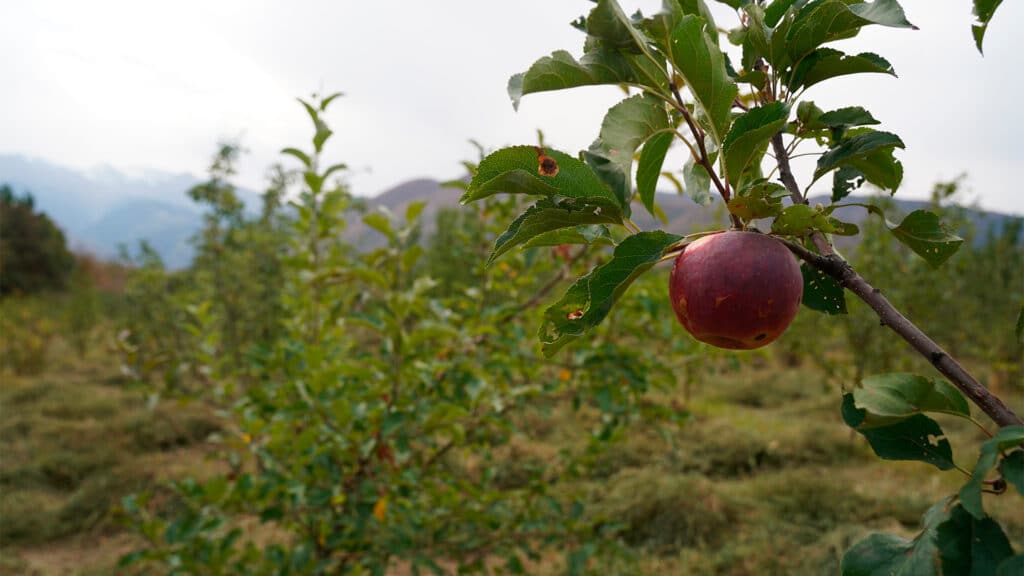
Long hailed as a symbol of good health, apples are once again earning scientific praise for their nutritional value. According to a BBC report, apples are rich in fiber, vitamin C and antioxidants, supporting heart health, digestion and immune function. Studies increasingly show that eating apples regularly can help lower cholesterol, improve gut health and reduce inflammation.
However, few people know that the story of the modern apple begins in Kazakhstan. The Sievers apple (Malus sieversii), a wild ancestor of today’s domesticated varieties, grows naturally in the foothills of the Tian Shan mountains near Almaty. This rare species is believed to be the genetic source of most apples found on grocery store shelves around the world.
Botanists have long recognized Kazakhstan as the apple’s birthplace. Genetic studies confirm that Malus sieversii carries traits of exceptional diversity, ranging in size, color, flavor and disease resistance. Unlike modern apple cultivars, these wild apples have evolved without the influence of selective breeding, giving them a unique edge in terms of resilience and adaptability.
The importance of preserving this natural heritage has drawn global attention. The Sievers apple is included in the Slow Food Foundation’s Ark of Taste, a catalog of endangered food species worth saving. Conservationists warn that urban expansion, agriculture and climate change threaten the apple’s native habitat.
Kazakhstan has taken steps to promote awareness of its wild apple legacy, especially in Almaty, a city whose very name is derived from the word «apple.» Local scientists and growers are working to protect remaining wild groves and educate the public about their ecological and cultural value.
While nutritionists continue to recommend «an apple a day,» the humble fruit’s global journey from Kazakhstan’s mountains to supermarket bins underscores the importance of biodiversity and conservation.
For Kazakhstan, apples are a source of national pride. Last year, President Kassym-Jomart Tokayev presented a chest of unique Almaty apples to Serbian President Aleksandar Vučić during an official visit to Belgrade.













